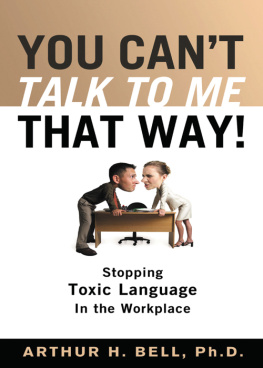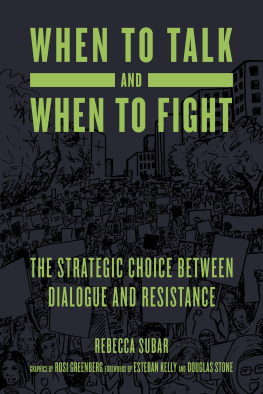Copyright 2001 by Alon Gratch
All rights reserved. No part of this book may be reproduced in any form or by any electronic or mechanical means, including information storage and retrieval systems, without permission in writing from the publisher, except by a reviewer, who may quote brief passages in a review.
Hachette Book Group
237 Park Avenue, New York, NY 10017
Visit our website at www.HachetteBookGroup.com.
First eBook Edition: April 2009
ISBN: 978-0-316-07466-7
To Michele, Jordan, and Ilana with love
All the cases described in this book are composites. They have been deliberately mixed and altered in order to protect my patients rights of confidentiality and privacy. All patients names have been changed as have other aspects of their identities, including their occupation, marital status, age, and family background. I have also modified the details of their experiences and dreams. Any resemblance to actual persons, living or dead, or to actual events is purely coincidental.
First and foremost, Id like to thank my patients, male and female. Without their trust and openness to the therapeutic process, this book could never have been written. Their struggle to uncover their own psychological truths and the courage they bring to it inspired me both at work and in my own personal searches. And Ive learned more about psychology from them than from any book, theory, or teacher.
Two individuals who have taught me much about my own development as a man will no doubt recognize their imprint on my thinking throughout this book. Ironically, but not inconsistently with the thesis of the book, both are women: my wife (and colleague), Michele Sacks, and my own analyst, Dr. Betty Hellman. The extent of my emotional and intellectual debt to my wife cannot be expressed in words, certainly not in these public pages. Recalibrated, and for different reasons, the same can be said about my analyst.
My editor at Little, Brown, Judy Clain, has played a critical role in the overall direction of the book from the moment she read the initial manuscript. She brought to the project great enthusiasm and intelligence, shaping it with insights and comments which were thoughtful, creative, and practical. She also encouraged me to be more open about myself, which made the writing process both more challenging and more gratifying. I also want to thank the rest of the team at Little, Brown, particularly Beth Davey, Linda Biagi, Heather Rizzo, Matthew Ballast, Claire Smith, and Betty Power. I owe a special debt to my agent, Judith Riven. From the very beginning of our relationship, she reinforced my efforts to develop my own voice, never trying to dilute it. She treated me and my text with a firm but gentle hand, and was not afraid to confront me when necessary, always with great integrity and respect. She worked with me and on my behalf with unusual intensity, humanity, and professionalism.
I am deeply indebted to Mark Rosenman and Jane Rosenman for going out of their way to offer advice and assistance which eventually facilitated the publication of the book in its current form. Also, to several colleagues and friends who read the initial manuscript and responded with words of encouragement and/or critical suggestions: Brenda Berger, Eric Friedberg, Morris Shinderman, Beth Dorogusker, Adam Price, Arthur and Evelyn Sacks, George Packer, Anne Berkowitch, and Linda Kane. Im greatly indebted to two writer friends, Zia Jaffrey and Joseph Berger, for supporting and facilitating my work as a writer early on in my career.
Other friends, colleagues, teachers, or supervisors who have influenced my personal development and work over the years are Itamar Lurie, Ivan Bresgi, Richard Shuster, Ysrael Eliraz, Harvey Hornstein, Joel Davitz, Marsha Levy-Warren, Sandra Buechler, Karen Crystal, Mona Macksoud, Peter Cohen, Andy Grunebaum, and Laurie Grunebaum. I would also like to thank Gordon Churchwell, Judy Siegel, and Frank Schnneir for referring me to various individuals in the publishing community.
Last but not least, home is where we come from. Id like to express my deepest gratitude and love to my parents, Haya and Avraham Gratch and to my two brothers, Eli Gadot and Ariel Gratch. Without their love, encouragement, and generosity nothing in my life that I value would be here with me today.
let me count the ways
M en are difficult. On the surface, they often seem distant and elusive. Or loud and obnoxious. And when you try to get to know them, it often gets worse they can become defensive and impenetrable. Indeed, unlike women, who are generally open with their feelings, most men find it extremely difficult to open up to others. But when they finally do, they invariably reveal a dramatic, bold, and amazingly vulnerable inner self. This hidden self, and the challenges it presents for the occasional visitor, is the subject of this book. As I explore the inner world of men, we will come upon multiple sightings of the central paradox on which masculinity rests: the cornerstone of mans gender identity is his feminine, not his masculine, desires.
I am a clinical psychologist working primarily with men, which is unusual because most psychotherapy patients are women. So while many therapists spend their time listening to women complain about men who dont talk, dont listen, or dont understand, I spend most of my time listening to these men. And with a little bit of help, my male patients do talk, do listen, and do understand.
In presenting the inner world of men, I am assuming that women will always be in the business of trying to decode male behavior. For them, its a practical matter of improving their relationships with men a high priority for many women. In writing this book I hope to help women to attain this goal, not by telling them what to do, but rather, by inviting them into the emotional and spiritual equivalent of the male locker room. My intention is to discuss my experiences with male patients and to share what I do, as a psychologist, when confronted with some of the troublesome aspects of male psychology. In short, Im going to tell the inside story about men.
But this book is not only for women. As a writer, Id like to replicate here what I believe I have accomplished as a psychologist to reach and connect with men. I hope, as they read about other mens struggles to break out of their emotional isolation, male readers will feel understood and moved and that what they read will mirror and nurture their own self-knowledge nas-cent, secret, or not fully conscious as it may be.
What brings men to therapy and what they end up talking about in therapy are two different matters. For one thing, at the beginning of therapy many men dont talk at all that is, about anything significant or interesting. In a sense, men come to therapy because they dont talk. Since their unconscious philosophy is that talk is cheap and that actions speak louder than words, they often enter therapy in the same way that they drive: rather than ask for directions, they keep on going until they reach a dead end, are lost, or have an accident. Even then they may avoid asking for help: their backseat driver might do it for them.
In that way, many of my male patients stumble into my office for the initial consultation after some destructive action and/or at the urging of their spouse or girlfriend. In the latter case, they are often dragged in because they refuse to communicate or because they communicate chiefly by means of angry outbursts or other unseemly discharges. Sometimes they are forced to come for the same reasons not by an intimate partner but rather by a business partner or a boss. An ultimatum a threat of divorce or of termination of employment is often involved.








